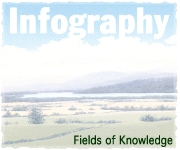
 | |
Melville, Herman (1819-1891) | |
The following sources are recommended by an expert whose research specialty is Herman Melville. |
· Bryant, John, ed. A Companion to Melville Studies. Greenwood Press, 1986.
· Levine, Robert S. The Cambridge Companion to Melville. Cambridge University Press, 1998.
· Leyda, Jay, ed. The Melville Log: A Documentary Life of Herman Melville, 1819-1891. 1951. 2 vols. Gordian Press, 1969.
· Parker, Hershel. Herman Melville: A Biography. Volume I, 1819-1851. Johns Hopkins University Press, 1996.
· Reynolds, David S. Beneath the American Renaissance: The Subversive Imagination in the Age of Emerson and Melville. Alfred A. Knopf, 1988.
· Rogin, Michael Paul. Subversive Genealogy: The Politics and Art of Herman Melville. Alfred A. Knopf, 1983.
· Anderson, Charles. Melville in the South Seas. Columbia University Press, 1939.
· Baym, Nina. "Melville's Quarrel with Fiction." PMLA 94 (1979): 903-923.
· Bell, Michael Davitt. The Development of American Romance: The Sacrifice of Relation. University of Chicago Press, 1980.
· Bellis, Peter. No Mysteries out of Ourselves: Identity and Textual Form in the Novels of Herman Melville. University of Pennsylvania Press, 1990.
· Bickley, R. Bruce, Jr. The Method of Melville's Short Fiction. Duke University Press, 1975.
· Brodhead, Richard H. Hawthorne, Melville, and the Novel. University of Chicago Press, 1976.
· Bryant, John, and Robert Milder, eds. The Evermoving Dawn: Essays in Celebration of the Melville Centennial. Kent State University Press, 1997.
· Buell, Lawrence. "Melville and the Question of American Decolonization." American Literature 64 (1992): 215-237.
· Castronovo, Russ. Fathering the Nation: American Genealogies of Slavery and Freedom. University of California Press, 1995.
· Charvat, William. The Profession of Authorship in America, 1800-1870: The Papers of William Charvat. Matthew J. Bruccoli, ed. Ohio State University Press, 1978.
· Chase, Richard. Herman Melville, A Critical Study. Macmillan, 1949.
· Dillingham, William B. An Artist in the Rigging: The Early Work of Herman Melville. University of Georgia Press, 1972.
· Dillingham, William B. Melville's Later Novels. University of Georgia Press, 1986.
· Dillingham, William B. Melville's Short Fiction, 1853-1856. University of Georgia Press, 1977.
· Dimock, Wai-chee. Empire for Liberty: Melville and the Poetics of Individualism. Princeton University Press, 1989.
· Dryden, Edgar A. Melville's Thematics of Form: The Great Art of Telling the Truth. Johns Hopkins University Press, 1968.
· Feidelson, Charles. Symbolism and American Literature. University of Chicago Press, 1953.
· Franklin, H. Bruce. The Wake of the Gods: Melville's Mythology. Stanford University Press, 1963.
· Gilman, William H. Melville's Early Life and Redburn. New York University Press, 1951.
· Herbert, T. Walter. Marquesan Encounters: Melville and the Meaning of Civilization. Harvard University Press, 1980.
· Karcher, Carolyn. Shadow over the Promised Land: Slavery, Race, and Violence in Melville's America. Louisiana State University Press, 1980.
· Kelley, Wyn. Melville's City: Urban and Literary Form in Nineteenth-Century New York. Cambridge University Press, 1996.
· Leverenz, David. Manhood and the American Renaissance. Cornell University Press, 1989.
· Levin, Harry. The Power of Blackness: Poe, Hawthorne, Melville. Alfred A. Knopf, 1958.
· Levine, Robert S. Conspiracy and Romance: Studies in Brockden Brown, Cooper, Hawthorne, and Melville. Cambridge University Press, 1989.
· Madden, J. The Life and Works of Herman Melville. http://www.melville.org/
· Matthiessen, F.O. American Renaissance: Art and Expression in the Age of Emerson and Whitman. Oxford University Press, 1941.
· Martin, Robert K. Heroes, Captains, and Strangers: Male Friendship, Social Critique, and Literary Form in the Sea Novels of Herman Melville. University of North Carolina Press, 1986.
· McCall, Dan. The Silence of Bartleby. Cornell University Press, 1989.
· Miller, Perry. The Raven and the Whale: The War of Words and Wit in the Era of Poe and Melville. Harcourt Brace and World, 1956.
· Otter, Samuel. Melville's Anatomies: Bodies, Discourse, and Ideology in Antebellum America. University of California Press, 1998.
· Pease, Donald. Visionary Compacts: American Renaissance Writings in Cultural Context. University of Wisconsin Press, 1987.
· Post-Lauria, Sheila. Correspondent Colorings: Melville in the Marketplace. University of Massachusetts Press, 1996.
· Renker, Elizabeth. Strike through the Mask: Herman Melville and the Scene of Writing. Johns Hopkins University Press, 1996.
· Robertson-Lorant, Laurie. Melville: A Biography. Clarkson Potter, 1996.
· Sealts, Merton M., Jr. Melville's Reading. University of South Carolina Press, 1988.
· Seelye, John. The Ironic Diagram. Northwestern University Press, 1971.
· Sherrill, Rowland A. The Prophetic Melville: Experience, Transcendence, and Tragedy. University of Georgia Press, 1979.
· Sten, Christopher, ed. Savage Eye: Melville and the Visual Arts. Kent State University Press, 1991.
· Sten, Christopher. The Weaver-God, He Weaves: Melville and the Poetics of the Novel. Kent State University Press, 1996.
· Thompson, Lawrance R. Melville's Quarrel with God. Princeton University Press, 1952.
· Tolchin, Neal L. Mourning, Gender, and Creativity in the Art of Herman Melville. Yale University Press, 1988.
· Ziff, Larzer. Literary Democracy: The Declaration of Cultural Independence in America. Viking, 1981.
"The Infography about Herman Melville (1819-1891)"
http://www.infography.com/content/177252362564.html
© 2009 Fields of Knowledge
Essex, Iowa 51638-4608 USA